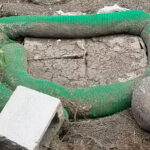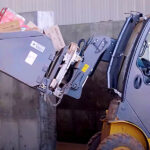Top: New regulations facilitate establishment of composting facilities. Photo courtesy city of Yorkton, Saskatchewan, Canada
The province of Saskatchewan in Canada has amended its composting facility regulations to enable smaller composting facilities to operate with “less administrative burden,” according to the provincial government. The Compost Facility Chapter of the Saskatchewan Environmental Code “strikes a balance between environmental protection and practicality, benefitting both communities and the environment,” said Environment Minister Travis Keisig when announcing the new regulations. Currently, compost facilities are regulated through landfill permits. With the new chapter, which went into effect in May 2025, municipalities and private companies will not need to apply for permits. Facilities have two options:
- Standard method: Provides specific instructions for siting, constructing and closing the facility. This method does not require approval.
- Alternative solution: Offers more flexibility in the siting and design of composting facilities while ensuring environmental protection. It requires an approved environmental protection plan.
Higher-risk facilities handling more than 15,000 metric tons of organic material annually are required to follow the alternative solution to ensure the Environment Ministry is engaged in the project while still allowing flexibility and innovation. Smaller facilities like community gardens or residential backyard composting are not regulated under the chapter. Existing facilities are exempt from certain siting, design and construction requirements unless they undergo expansion.













